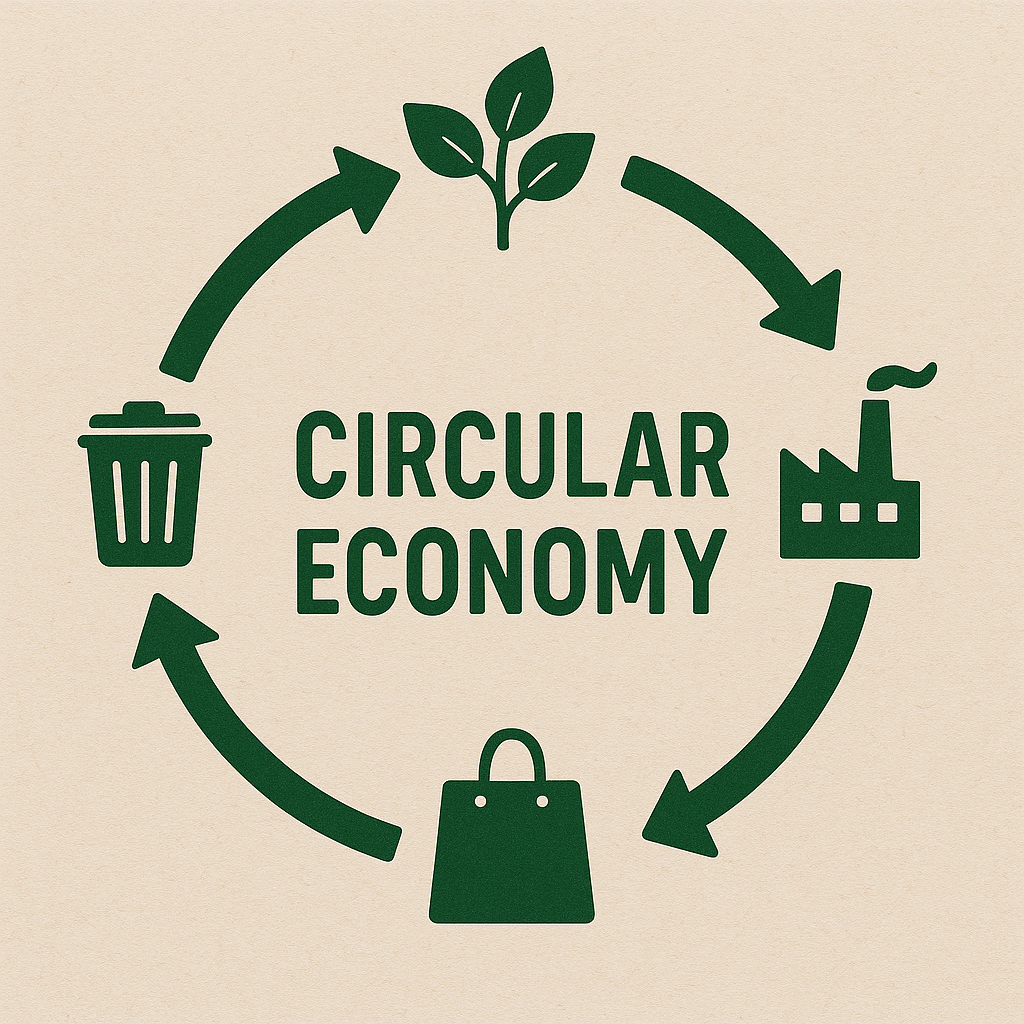Africa is at a crossroads. The continent is rich in natural resources, yet millions struggle with poverty, waste, and environmental degradation.
The traditional linear economy – where we take, make, and waste – is failing Africa. It’s time for a better system: the circular economy.
A circular economy isn’t just about recycling. It’s about redesigning how Africa produces, consumes, and disposes of goods to create jobs, reduce waste, and protect the environment.
And this article will tell you all about it.
Africa’s Resource Paradox – Wealthy Land, Growing Scarcity
Africa has 30% of the world’s mineral reserves, 65% of its arable land, and vast renewable energy potential. Yet, many African countries suffer from resource scarcity, pollution, and economic instability.
Why?
Most African economies follow a take-make-waste model:
- Mining and Oil: Extracted resources are exported raw, with little local processing.
- Agriculture: Up to 50% of food is lost due to poor storage and transport.
- Manufacturing: Single-use plastics and fast fashion create mountains of waste.
The Solution – Circular Resource Management
A circular economy keeps resources in use for as long as possible.
For instance:
- Mining: Recycling e-waste (like old phones) to recover gold and cobalt.
- Agriculture: Turning food waste into compost or biogas.
- Manufacturing: Using recycled plastics for construction materials.
| – Case Study:
Ghana’s Agbogbloshie e-waste dump is one of the world’s largest. Yet, startups like Coliba Africa are turning this crisis into opportunity by recycling electronics and creating jobs. |
The Waste Crisis in Africa
Africa’s cities generate 125 million tons of waste annually, and 90% is mismanaged. Plastic clogs rivers, landfills overflow, and toxic waste poisons communities.
But what if waste became a resource?
How Circular Economies Fix Waste
- Plastic Recycling: Companies like Mr. Green Africa turn plastic waste into new products.
- Upcycling: In Nigeria, Wecyclers pays people for recyclables, reducing landfill waste.
- Organic Waste: Kenyan startups convert food scraps into fertilizer and clean energy.
The Informal Sector’s Role
Millions of Africans already work in informal recycling. Formalizing this sector with better policies and technology could:
- Create stable jobs.
- Reduce pollution.
- Boost local economies.
Job Creation and Economic Resilience
Africa’s youth unemployment crisis is worsening. But the circular economy could generate 6 million new jobs by 2030, according to ILO.
– Circular Jobs in Action:
- Agri-waste: Turning crop residues into biofuels and animal feed.
- Fashion: Brands like Studio 189 upcycle textiles, employing local artisans.
- Tech Repair: Fixing electronics instead of dumping them extends product life.
Circular economies thrive on small-scale, local businesses, perfect for young entrepreneurs and women-led enterprises.
Also: Check out our recent guide to starting a recycling business from your home.
Climate Change and Biodiversity Protection
Africa contributes less than 4% of global emissions but suffers the most from climate change.
Circular economies can:
- Cut emissions (e.g., regenerative farming absorbs CO₂).
- Protect forests by reducing demand for raw materials.
- Save wildlife by preventing pollution in rivers and oceans.
Example: In Rwanda, a ban on single-use plastics cleaned waterways and boosted tourism.
How to Make Circular Economies Work
– Challenges:
- Weak Policies: Many governments lack recycling laws.
- Funding Gaps: Startups struggle to secure investment.
- Awareness: Many people don’t know circular options exist.
– Solutions:
- Stronger Policies: Rwanda and South Africa lead with plastic bans.
- Public-Private Partnerships: Companies and governments must collaborate.
- Education: Teaching circular principles in schools and communities.
In Conclusion
The circular economy isn’t a luxury, it’s a necessity for Africa.
It can:
- Reduce waste and pollution.
- Create millions of jobs.
- Fight climate change.
The question isn’t if Africa should adopt circular economies, it’s how fast we can make it happen.
Africa has the resources, the people, and the innovation. Now, it needs action.
